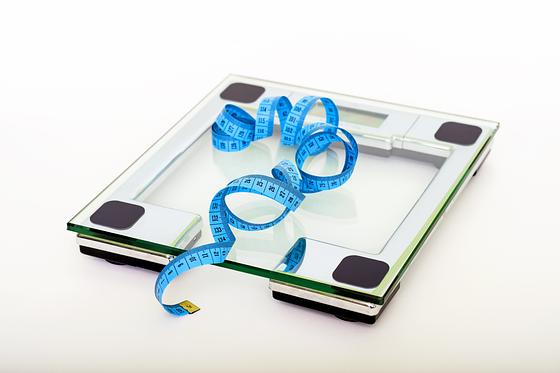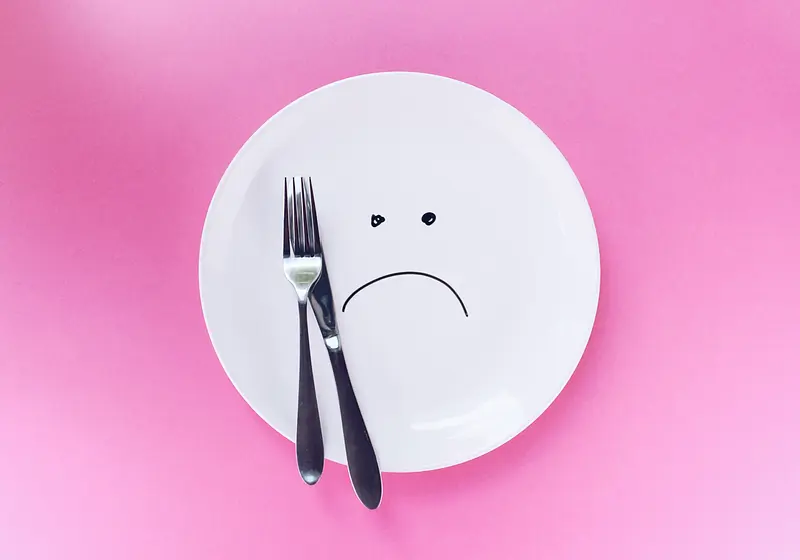One of the most unhealthy, and yet commonly used weight-loss methods, especially among teenage girls, is eating very few calories in a day. This "diet" is highly discouraged by health and fitness experts for weight loss goals and here’s why.
The Concept of Weight Loss
The human body requires a specific amount of energy (calories) to go about its usual activities. This amount of energy varies individually and is influenced by various factors such as age, gender, height, weight, BMR (basic metabolic rate), activity level (how active you are on a daily basis) and even genetic factors. While the way our body utilizes this energy varies, the sequence of metabolic processes, however, remains the same.
When we consume more calories than the body needs, the body releases a hormone known as Insulin that converts excess glucose to glycogen which is then stored as fat for future use. Failure to utilize the stored glucose leads to more storage in order to regulate blood sugar. This is the primary cause of weight gain. There are other factors that may contribute to weight gain such as stress, hypothyroidism, etc., however, these aren't nearly as common.
When the body burns off already consumed calories, it starts to breakdown the excess fat that has been stored to produce energy for the body thereby leading to fat loss and consequentially weight loss. Therefore, the trick in weight loss is simply to consume fewer calories than your burn or to burn more calories than you consume by engaging in more physical activities.

Image Credit: Pixabay from Pexels
How Starving Makes You Lose Weight (in the short term)
Since the concept of weight loss is a deficit in caloric intake, starving yourself will with no surprise, lead to a drastic fall in body weight which is what you likely want if you're reading this article. However, understanding the full process will help you realize the harmful effects and rethink the decision of severely cutting back calories. When we deprive ourselves of food, our insulin level falls and our body goes to stored fat for energy to carry out basic activities like breathing.
This is a process known as ketosis. Not all organs can function properly on energy gotten from fat cells.
Ketosis is a metabolic state in which the body produces ketones to be used as fuel by some organs so that the glycogen can be reserved for organs that depend on it. This condition occurs during times of fasting, starvation, or while on a ketogenic weight loss diet.
The Effects of Starving
1. Poor metabolism
When you starve, your body basically has nothing to digest and utilize. This causes your basic metabolic rate to decrease rapidly in order to minimize energy expenditure by the body. A decrease in metabolic rate can lead to fatigue and other health-related issues. It can also cause a rapid increase in weight once eating resumes as your body will require time to re-adjust to its normal BMR.
2. Loss of muscle mass/Poor muscle growth
There are some organs that don’t function effectively on fat alone. For example the brain utilizes over 75 percent of the fat broken down and requires more to go about its daily activities. In such a situation, the body tends to go in search of other sources of nutrients and thus, breaks down muscle tissue for more protein to supply to these organs.
3. Decrease in Productivity
This is a result of weakness and fatigue experienced by the body as a result of minimal energy expenditure.
4. Fatigue
.jpg)
Image Credit: Andrea Piacquadio from Pexels
Minimal energy expenditure is sure to lead to fatigue as your body doesn't have enough energy to keep you on your feet.
5. Short term memory loss
This is among the side effects of ketosis. The brain usually depends on glucose gotten from carbs for most of it basic functions. When starving, the energy sources are limited to stored fat which is not enough for the brain to carry out its full functions.
6. Weak immune system
When you starve, your body lacks the nutrients required to strengthen your immune system.
7. Sickness and Infections
This can happen due to the weak immune system.
8. Fast weight gain after the resumption of normal portions
This happens because your BMR will reduce drastically during starvation and will require some time to re-adjust, thus making it easier for your body to store fat.
9. Low sugar level
There is a shortage of sugar during starvation and this causes the overall sugar level to drop which adds to the fatigue and overall misery you will feel.
10. Death in extreme cases
This occurs over an extreme period of time, and studies lack a complete understanding of how long people can go on very little food. Even if a low-calorie diet doesn't get this extreme, it can cause permanent effects on your BMR however which will still cause lots of problems with food later in life.
Healthy Alternatives Proven to Work

Image Credit: Jane Doan from Pexels
I know that slow and steady isn't what you want to hear (I know, you want results now!), but that is the only way that your body is built for weight loss. So, instead of starving yourself for weight loss for fast results (which will result in a *ton* of side effects), here are some healthy alternatives that will help you along your journey instead of sabotage it.
1. Intermittent fasting
This is fasting for a certain amount of time and having a specific eating window daily. There are various forms, there is 16-8 (where you fast for 16 hours and have an 8-hour eating window), 20-4 and in extreme 23-1(having only one-hour eating window per day). This gives your body space for digesting and utilizing food eaten which will help increase metabolism and so helps in weight loss.
2. Fasted Cardio
Going for a run, hike or walk before breakfast each day can go a long way in helping you lose weight. Fasted cardio involves making the body active on an empty stomach to enable it to run on already stored fuel (fat), thereby helping weight loss. Fasted cardio must not always be done in the morning, it can be done 3-4 hours after a meal when the body must have fully digested the food consumed.
3. Resistance and Bodyweight training
This helps in building muscles which is great for weight loss. Cardio helps to lose weight, but body weight and resistant exercises make you lose weight and tone up at the same time.
Muscle building enables maximum calorie burn because muscles burn more energy than fat and you will burn calories even while sleeping!

Image Credit: Jessica Monte from Pexels
4. Keto-Diet
The keto diet is a low carb diet. This involves drastically reducing carbohydrates from diet and replacing it with mostly fat and protein. A normal diet comprises of about 50-60 percent carbohydrates and 20 percent fat but a ketogenic diet will comprise of only 20-30 percent or even less of carbohydrates and over 40-70 percent of fats and protein.
Yes, it may take a bit longer to get results, but these are proven methods that if you stick to, will work eventually, even if it's not right away. There's a great quote that goes, “If you hang out in a barbershop long enough, eventually you're going to get a haircut.” Likewise, if you try long enough, and do something every day to get closer to your goal, eventually you will get there. The key is making sure you start with the correct mindset and commit to your journey for the long haul. If you do that, then this time will be the last time you will have to start all over again.
Commit to this journey today, and choose a strategy that is both healthy for your mind and body.










